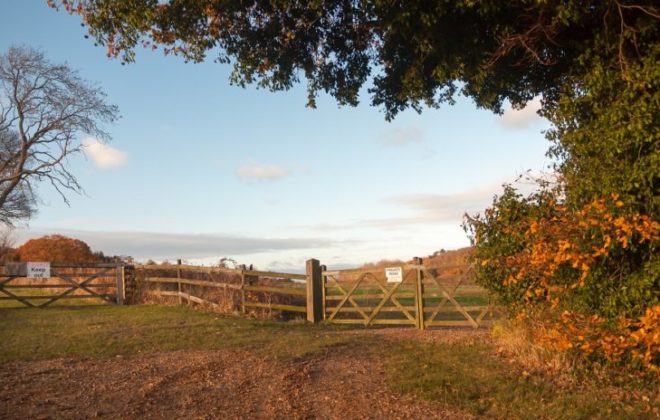What Should My Employer Do If I Am Injured At Work?
Sharing is caring!
If you sustain an injury at your place of work, or while out and about on work business, then your employer’s initial concern should be to make sure that you receive appropriate medical care and that the scene of the accident is made safe so that no one else is put at risk of harm.
Once this has been done, they should turn their attention to ensuring that details of the accident are properly recorded and that a thorough investigation is carried out to establish how the accident happened and what can be done to reduce the likelihood of a similar accident occurring again.
As an injured employee, it is important that you understand the process that your employer ought to go through in the aftermath of an accident at work – firstly, to satisfy yourself that they will learn from any mistakes that have been made, and secondly so you can begin to gather evidence which may be of use if you decide to pursue your employer for personal injury compensation.
First things first – your employer’s duty of care
Before looking at what your employer should do following an accident at work, it is worth confirming the legal duty that they have to protect your health and safety and which extends to ensuring, among other things, that you are properly trained to do what you have been employed to do, that any machinery or equipment you are required to use is adequately maintained, that you are issued with appropriate PPE, that any hazardous areas are made as safe as they possibly can be and are clearly signposted, and that regular general and job-specific risk assessments are carried out.
Where your employer fails to comply with their duty of care, and you suffer an injury as a result of this, then it may be possible for you to claim compensation – and not just for the pain and suffering that your injury has caused, but also for any financial losses you have or are likely to experience.
The cost of your claim will be met by your employer’s insurer and will not affect your employment law rights. Claims are common place and, where the injuries you have sustained are serious, the compensation you may be entitled to could provide you with much needed future financial security.
Post-accident steps
The things that your employer will need to do will following an accident, will vary depending on the circumstances. However, detailed below is a list of the key steps that will usually be required, as compiled by the head of our personal injury team, Anna Rushton.
- Recording your accident
Your employer should make sure that details of the accident in which you were hurt are properly recorded in their accident book. This will necessitate them making a note of the time and date on which the accident happened, where it occurred, the person injured (i.e. you), the nature and severity of the injuries sustained, the action taken to ensure appropriate medical attention was received and, where relevant, the steps taken to make the scene of the accident safe.
It is important that you, or a colleague acting on your behalf, check that an entry in the accident book has been made, as this will provide irrefutable proof that the accident occurred and provide a contemporaneous note of the circumstances in which it happened and the nature of your injuries – which will be vital if you do decide to make a personal injury claim.
- Filing a RIDDOR report
In certain cases, your employer will also be required to file a report with the Health and Safety Executive under the Reporting of Injuries, Diseases and Dangerous Occurrences Regulations (RIDDOR). This includes where the injury you have sustained means that you will need to take seven or more days off work, or where you have:
- Fractured a bone (other than in your fingers, thumbs or toes);
- Lost consciousness as a result of a head injury or asphyxia;
- Suffered a full or partial amputation;
- Suffered an injury that is likely to lead to sight impairment or permanent sight loss;
- Sustained a crush injury to your head which has resulted in brain damage;
- Sustained a crush injury to your torso which has resulted in internal organ damage;
- Suffered serious burns or scalding to more than 10% of your body, or which has caused significant damage to your eyes, respiratory system or vital organs;
- Been scalped to the extent that you need hospital treatment; or
- Been injured while working in an enclosed space and this has resulted in you suffering from hypothermia or a heat-induced illness, requiring resuscitation or needing to be admitted to hospital for more than 24 hours.
A RIDDOR report will also be required where a fatal accident has occurred, or where there has been a near miss event i.e. an incident which had the potential to cause death or serious injury.
Where a RIDDOR report has been submitted, you have the right to ask for a copy of this and to use the information contained in the report to support your compensation claim.
- Investigating what happened
Your employer will also usually need to carry out an internal investigation to try to understand how and why the accident occurred, and to identify any changes in policy or procedure that could and should be made to prevent the same or a similar type of accident from happening again. In addition, in serious injury cases, your employer may have to take part in a Health and Safety Executive investigation or even a police enquiry where criminal behaviour is alleged.
The outcome of these investigative processes is likely to shed valuable light on why it is that the accident occurred, the extent to which it could have been foreseen or prevented and, crucially, the degree of blame that your employer should have to shoulder.
An examination of these reports should also reveal whether accidents similar to yours have ever happened on your employer’s watch before and, if so, whether they have taken appropriate steps to try to learn from their past mistakes or errors of judgement.
- Implementing changes
Where it is clear that changes are needed to the way in which your employer’s business is run, or to the way in which certain activities or tasks are performed, then these changes should be made and you should be advised of this so that you have some degree of reassurance that lessons have been learned and that appropriate safety improvements have been made.
Where your employer fails to do anything to address a known and identified risk, then this will reflect very badly on them – both with the Health and Safety Executive and a judge in the event that you decide to make a claim for compensation and the matter ends up at court.
- Paying you what you are owed
Where the nature of your injuries mean that you will have to take time off work, even for a short period, your employer should assess your eligibility to receive statutory sick pay and also any additional payments due under your contract of employment or an employee benefits scheme.
In addition, where your employer admits that they were at fault for what happened and that you should therefore be paid appropriate compensation, they should consider paying you a lump sum on account of the payout that you will eventually receive i.e. to tide you over financially and to cover your medical costs, loss of earnings, out of pocket expenses and any ongoing care costs while you wait for your claim to be formerly processed and settled.
They should also consider offering to pay for any private treatment, rehabilitation therapies or counselling that may help to speed up your recovery, and look at the various means by which you could be supported to return to work – assuming of course that the nature and extent of your injuries does not prevent this from happening.
How we can help
Our accident at work specialists can tell you quickly whether a claim for compensation may be possible and, where it is, handle the entire claims process on your behalf. Our service is fast and efficient and designed to ensure that you not only receive the payout that you deserve, but also the help and support needed to get back on your feet and back to some sense of normality as soon as possible. We can even provide our service in Polish, Tamil, Sinhala or Malayalam at no extra cost.
We are experienced in recovering compensation for a variety of injuries, including those caused by:
- A slip, trip or fall from height;
- Being crushed by a machine, moving vehicle or falling object;
- Getting your hand, hair or clothing trapped;
- Being knocked over by a forklift truck or other works vehicle;
- Being involved in a road traffic accident;
- Being set alight or burned, e.g. following an explosion or touching a corrosive substance;
- Lifting heavy equipment;
- Working in hazardous conditions; or
- Using unsafe or defective machinery or equipment.
It is easy to find out if a claim can be made – just call us now on 0800 195 6412 to arrange a free assessment and to find out if you qualify for no win, no fee funding, which will enable you to make a claim with no upfront costs and with no liability to pay our fees unless your claim is successful.
We can support you to make a claim for compensation where you have been injured:
- On a construction site;
- In a warehouse, factory, or distribution centre;
- On a farm or in a food processing plant;
- In a transportation business or garage;
- In a quarry or mine;
- In a pub or restaurant;
- In a hotel or leisure complex;
- In a supermarket or retail unit;
- In an office or other workspace; and
- While travelling or visiting someone on work-related business.
We can also help where you are the relative of someone who has died at work following a fatal accident.
To find out more, please call us now and ask to speak to one of our personal injury advisors.
Categories
Reviews
About Us
- We have a commitment to you, ensuring that we’re making a difference to people’s lives
- We put real value on individuals and our local communities
- We believe in open and honest advice, helping you to make life better.
Testimonials
What more can i say?…
Professional and compassionate
Nothing was too much trouble for Anna and her colleagues as they strived to get the best result for me.
I’m delighted to say that the case was resolved to my satisfaction.
fantastic service
The service I received from Mr Hussain and the colleagues wasRead more “fantastic service”
pleasant experience
The overall mark out of ten for my experience has got to be 11. Thank you to Mr Abid Hussain for making an unpleasant experienceRead more “pleasant experience”
excellent communication
Satisfactory
Recommend to family and friends
excellent service
I received excellent service. Mr Hussain explained everything in detail and I never had to worry about a thing beyond signing a few papers. ThankRead more “excellent service”
pleased with the service
I have been very pleased with the service you have gave me and thank you very much for all your hardRead more “pleased with the service”
Thorough and to the point
I felt reassured with what you were doing for me. It was thorough and to theRead more “Thorough and to the point”
Helpful and good team work
Just like to say thank you and it’s been so helpful. Very good teamRead more “Helpful and good team work”
well informed advice
I received well informed advice and was updated throughout the process. I was dealt with very courteously by Mr Hussain and hisRead more “well informed advice”
Good service
I have received a very good service from Mr Hussain and was very pleased with the outcome. I was always able to see someone to help ifRead more “Good service”
Fantastic
Fantastic friendly and very helpful professional advice, at any stage of process. Highly recommend anyone who needsRead more “Fantastic”
Very Friendly
I found staff to be very welcoming and friendly. Service I received was very informative andRead more “Very Friendly”
Thank you for help
best interests
It was excellent from start to finish. I felt I was always informed and that my best interests were atRead more “best interests”
Great
Great communication, quick response to any queries. A pleasure to do business with you. HighlyRead more “Great”
Thank you
A complete pleasure
Great communication
Happy with everything
Recommended services
My case was managed by Anna Rushton. Since winning my case I have recommended Anna’s services to a friend. I found her guidance and assistance second toRead more “Recommended services”
Sound advice
Reliable and good service
Efficient and professional
I would like to thank Anna Rushton for her efficiency and professional services as well as for her friendlyRead more “Efficient and professional”





